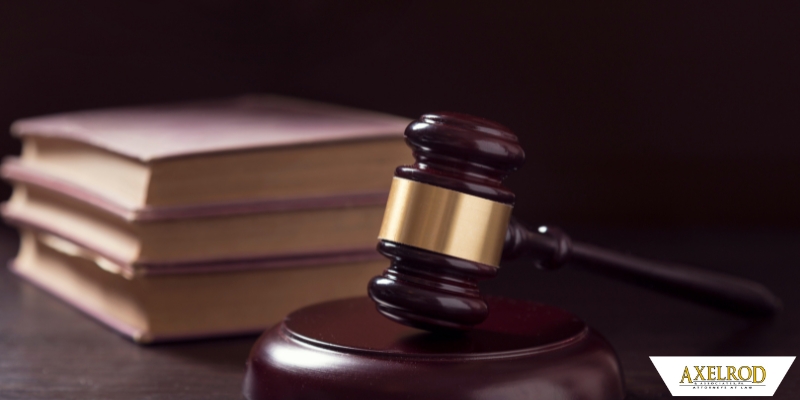Discovering the Strategies Employed by Appeal Attorneys to Effectively Promote for Clients in Appellate Judiciaries and Legal Proceedings
The complex landscape of appellate advocacy calls for attorneys to use a diverse array of strategies to properly represent their clients. Trick among these are thorough legal study and the artful crafting of influential briefs, which serve as the structure for compelling disagreements in appellate courts.
Understanding Appellate Court Characteristics
Understanding the complex dynamics of appellate courts is vital for attorneys browsing the intricacies of the appeals procedure. Appellate courts offer an unique feature within the judicial system, largely focusing on examining the decisions of lower courts to make certain legal accuracy and adherence to step-by-step criteria. Unlike trial courts, appellate courts do not carry out brand-new trials; rather, they examine the document from the lower court, evaluate legal debates, and think about composed briefs sent by both parties.
In this atmosphere, lawyers have to grasp the relevance of lawful criterion, as appellate courts frequently depend on well-known case law to notify their choices. Knowledge with the rules of appellate procedure is just as vital, as procedural errors can endanger a situation. In addition, recognizing the unique composition and preferences of appellate judges can guide attorneys in tailoring their debates effectively.
The tactical presentation of issues on appeal is important, requiring a clear identification of legal questions and a persuasive expression of why the reduced court's decision warrants examine. Generally, a detailed understanding of appellate court dynamics empowers attorneys to create engaging disagreements and advocate effectively for their customers in search of justice.
Value of Thorough Legal Research
Thorough lawful study is an essential pillar of successful appellate campaigning for, as it furnishes attorneys with the important knowledge required to develop strong arguments. This process entails an exhaustive assessment of laws, situation legislation, and legal criteria relevant to the concerns available. By carefully analyzing these sources, appeal lawyers can identify reliable support for their positions, which is critical in convincing appellate judges.
Additionally, extensive lawful research study makes it possible for attorneys to prepare for counterarguments that opposite counsel might present. appeal attorneys Colorado. Comprehending the nuances of the legislation allows lawyers to address prospective weak points in their situations proactively, therefore strengthening their total setting. In addition, familiarity with previous rulings and patterns in appellate law can offer understandings into exactly how particular arguments have actually fared in similar instances, directing lawyers in refining their techniques
Inevitably, comprehensive lawful study not just boosts the quality of legal briefs but likewise adds to an extra engaging dental campaigning for. By showing a deep understanding of the lawful landscape, attorneys can establish trustworthiness with the court, which is important for accomplishing positive end results in appellate process. In this affordable sector, the capacity to utilize thorough study can make a significant difference in the success of an appeal.
Crafting Persuasive Appellate Briefs
Crafting persuasive appellate briefs needs attorneys to distill complex legal arguments into clear, succinct, and engaging stories. The efficiency of a short hinges on its ability to engage the court while presenting a rational development of thought. Attorneys must begin by laying out the vital problems and making sure that each disagreement is supported by relevant laws, situation legislation, and accurate evidence.

Moreover, the tone has to be professional yet obtainable, avoiding extremely complex lawful jargon that might obscure the debate. Attorneys need to expect counterarguments and address them preemptively, enhancing their position.
Verdict areas have to succinctly summarize the essential disagreements while prompting the court towards a details resolution. Eventually, a well-crafted appellate quick not only expresses the client's setting but also demonstrates the lawyer's proficiency of the law, considerably affecting the outcome of the charm.

Grasping Dental Disagreement Techniques
Efficient dental argument methods are crucial for appellate attorneys looking for to encourage judges and advance their customers' interests. Grasping these techniques involves a mix of prep work, tactical interaction, and a deep understanding of lawful principles. Attorneys need to distill their instance's core arguments into an engaging story, ensuring clarity and brevity to maintain judicial attention.

Furthermore, utilizing convincing rhetorical techniques-- such as analogies, hypotheticals, and emphatic phrasing-- can boost the influence of a debate. Making use of these tools judiciously helps convey intricate lawful concepts much more understandly. Lastly, practicing dental debates via simulated sessions gears up attorneys with the necessary abilities to fine-tune their distribution and adjust to the court environment, ultimately cultivating an influential and efficient presentation that reverberates with appellate courts.
Browsing Judicial Preferences and Trends
Understanding judicial choices and patterns is essential for appellate lawyers aiming to customize their debates successfully. Each appellate court typically exhibits unique tendencies affected by its composition, historic choices, and the private philosophies of its judges. Lawyers should assess past judgments and opinions to recognize these choices, allowing them to straighten their arguments with click to find out more what resonates most with the court.
Looking into judicial backgrounds and certain cases can supply understandings into exactly how particular judges technique issues such as statutory analysis, procedural rules, and evidentiary criteria. Lawyers must likewise know any current lawful trends, consisting of changes in public law or emergent lawful concepts, that might impact judicial decision-making.
Integrating this expertise into appellate briefs and oral disagreements boosts the lawyer's Visit Website ability to advocate persuasively for their clients. By recognizing judicial choices, lawyers can mount their arguments in a manner that is more probable to involve the court's passions and address its concerns. Eventually, browsing these characteristics can dramatically influence the outcome of an appeal, underscoring the significance of calculated prep work in appellate campaigning for.
Verdict
In verdict, the performance of allure lawyers in appellate courts depends upon a complex strategy that encompasses comprehensive legal research, the building of persuasive briefs, and the mastery of oral advocacy strategies. By recognizing the characteristics of appellate court process and adjusting methods to line up with judicial preferences and trends, attorneys dramatically enhance their ability to support for customers. Such persistance and know-how inevitably add to improved outcomes in the facility landscape of lawful charms.